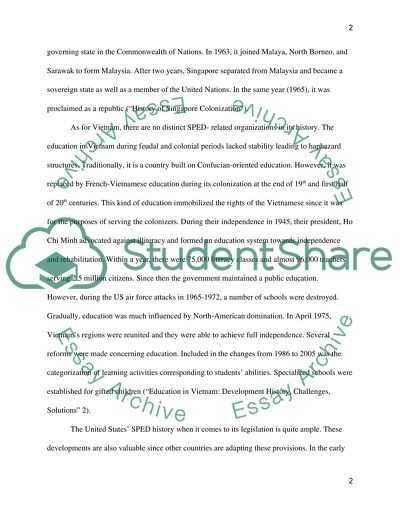Cite this document
(“Vietnam and Singapore's Special Education Compared with that of the US Research Paper”, n.d.)
Retrieved from https://studentshare.org/education/1445762-become-familiar-with-the-history-of-special
Retrieved from https://studentshare.org/education/1445762-become-familiar-with-the-history-of-special
(Vietnam and Singapore'S Special Education Compared With That of the US Research Paper)
https://studentshare.org/education/1445762-become-familiar-with-the-history-of-special.
https://studentshare.org/education/1445762-become-familiar-with-the-history-of-special.
“Vietnam and Singapore'S Special Education Compared With That of the US Research Paper”, n.d. https://studentshare.org/education/1445762-become-familiar-with-the-history-of-special.


